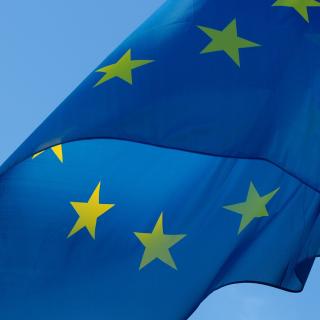Focus On Interview: Supporting Europe through our work

There’s a buzz of excitement in the Eurydice and Youth Wiki offices. The new Commission’s priorities and the recent hearings of designated Commissioners have brought a wave of fresh ideas, curiosity, and new analytical perspectives.
Covering areas such as the “Union of Skills,” lifelong learning, inclusive education, and citizen empowerment, Eurydice and Youth Wiki play in fact an important role in shaping future policies.
Our team of analysts shares here some perspectives into their recent and upcoming projects focused on skill development, the teaching profession, STEM education (Science, technology, engineering, and mathematics), youth participation, citizenship, and well-being in schools.
With passion and dedication, they provide a deeper understanding of how their analyses support policymakers across Europe to make informed decisions.
1. The new European Commission wishes to establish a Union of Skills, focusing on investment, adult and lifelong learning, and skills retention. Our analysts, David Crosier, Anna Horvath and Daniela Kocanova, explain to us how the Eurydice Network is addressing these priorities.
While establishing a Union of Skills is a new priority, the focus on relevant skills for European societies has long been a focus of European cooperation in education. The Eurydice Network has a long history of providing data and analysis reflecting this priority. Three closely related areas of Eurydice investigation can be highlighted in this regard.
First, Eurydice tracks and analyses national policies aimed at enhancing skills development in higher education. The focus on the social dimension of higher education – both in the context of the European Education Area (to be launched in 2025) and the European Higher Education Area (developed through the intergovernmental Bologna Process) – includes topics such as flexibility in higher education and recognition or validation of prior non-formal and informal learning. These topics were recently addressed in the 2024 Bologna Process Implementation Report as well as the short report on validation of non-formal and informal learning in higher education. Both reports give a reliable evidence base of issues for national policymakers to address.
Second, Eurydice investigates the highly complex area of adult education and training. In this context, the network produced in recent years major thematic reports exploring national approaches to promoting lifelong learning, with a particular focus on policies and measures supporting adults with low levels of skills and qualifications to access learning opportunities. Moreover, for many years, the network has been mapping key features of adult education and training systems in Europe within its descriptions of nation education systems. These descriptions can be seen as a unique inventory aiming to help policymakers to learn from each other.
Finally, the Eurydice Network is embarking on a new project on digital education in schools to support European countries in developing and implementing effective digital education policies. This involves monitoring and analysing the integration of digital competencies in school curricula, identifying teacher education and development needs, and providing insights to policymakers. By doing so, the network aims to enhance the quality of education, improve student outcomes, and prepare learners for the digital age in which we already live.
2. How does Eurydice’s work align with the European Teachers’ Agenda? What tools are available on the Eurydice website to help understand trends in the teaching profession? Sonia Piedrafita, our expert in the teaching profession field has quite a lot to say on this matter...
Educators are central to building a Union of Skills. The Commission has set up a dedicated agenda to join efforts to improve the working conditions, training, and career prospects of teachers in Europe.
The attractiveness of the teaching profession was the overarching theme of the 2023 Education and Training Monitor, which included many Eurydice indicators. We also published a policy brief on the teaching profession with a focus on teacher shortages.
The last update of Teachers’ and school head’s salaries and allowances in Europe (online tool) was released last 5 October. Eurydice has been collecting and publishing this data for almost two decades.
Next year, Eurydice will start a new study on teachers’ careers, professional development and working conditions, building upon previous Eurydice reports on the matter.
These reports can be found here:
3. Concerns are growing over declining student performance, a shortage of STEM teachers, and the underrepresentation of women in STEM. What data can Eurydice offer on these issues? Let’s hear from analysts Teodora Pareva and Anna Horvath.
At EU-level there is continued commitment to equity, inclusion, and support for disadvantaged students. The report we published two years ago on increasing achievement and motivation in mathematics and science education at school shows that while students from low socioeconomic backgrounds are over-represented among low achievers in all European education systems, the impact of gender on student achievement is less straightforward. In most countries, gender differences among low achievers in mathematics and science are not significant. Currently, we are working on a report that will analyse national strategies and major policy initiatives to reduce underachievement in basic skills (literacy, mathematics, and science).
4. The European Commission is committed to empowering young people, giving them a stronger voice in shaping our societies and democracies. How does our work support policymakers in tackling this challenge? Giulia Paolini, a youth policy analyst, takes us into the world of Youth Wiki to explain.
The Youth Wiki includes a rich section dedicated to opportunities and modalities of participation for young people, in the 34 countries it covers. Not only policy makers but also youth stakeholders and youth representatives can gain information about what is available in their countries. For example, section 5.3. of national descriptions illustrates the youth representative bodies (youth councils, youth advisory boards, youth parliaments...) in every country. It can be a useful gateway for young people and stakeholders to reach out and connect. The information contained in the Youth Wiki has also the potential to support countries to share their experiences and learn from each other, to provide additional spaces for participation for all young people.
5. President von der Leyen calls for stronger democracy protection, focusing on resilience, digital, and media literacy. Eurydice’s upcoming citizenship report will address European values, democratic participation, and critical thinking. Could you tell us more about this comparative analysis? Isabelle De Coster is our in-house expert on citizenship education...
Promoting citizenship education at school has been indeed a long-standing objective of European cooperation in the field of education. Recent Council Conclusions have called for strengthening the importance of this topic in education policies and for improving its quality based on evidence-informed studies and research, including a new Eurydice report on citizenship education. This new report will explore various key dimensions: the structure and contents of national curricula, teaching and learning methods, training for teachers and school leaders, and support to a comprehensive approach engaging the wider community. Building on the 2017 Eurydice report on citizenship education at schools in Europe, we aim to highlight the most significant reforms implemented by countries over the last years to enhance citizenship education. Furthermore, we will complement the analysis with research findings or from international surveys on school practices.
6. Protecting the mental health of children and young people, especially online, is a key issue today. Eurydice analyst Sogol Noorani shares her views on the upcoming student well-being report.
Well-being in education has gained increased attention over the past decade, with the COVID-19 pandemic highlighting its importance. Today, there is broad agreement at both national and European levels that prioritising the well-being of students and teachers is crucial for positive learning outcomes and for supporting the development of resilient, engaged citizens across Europe.
Eurydice will be working on a report focused on key areas: integrating well-being in curricula and teacher training, the role of school leadership, available support measures, and collaboration with key partners, such as the parents, health services, community organisations, etc. Recognising the vital role of school climate, the report will also examine policies and initiatives that foster safe, inclusive, and supportive environments, both in-person and online.
Author: Anna Maria Volpe
Analysts that contributed: Isabelle De Coster, David Crosier, Anna Horvath, Daniela Kocanova, Sogol Noorani, Giulia Paolini, Teodora Parveva, Sonia Piedrafita Tremosa.




